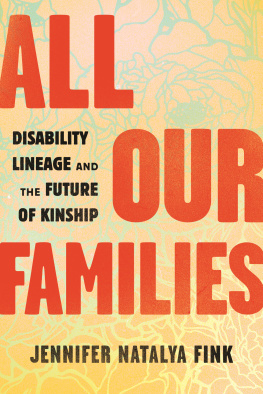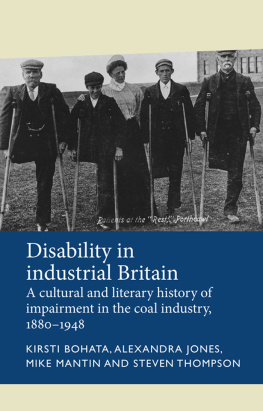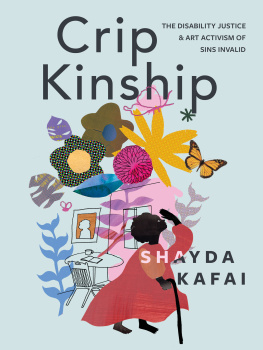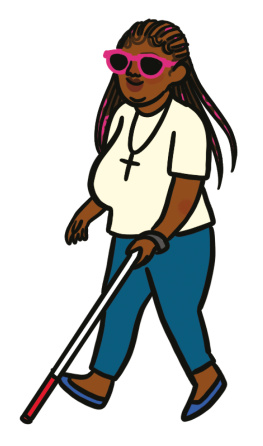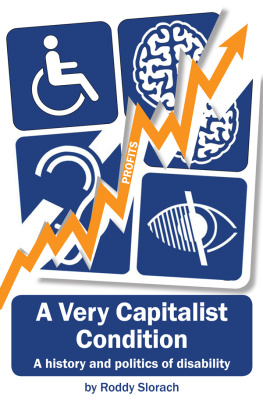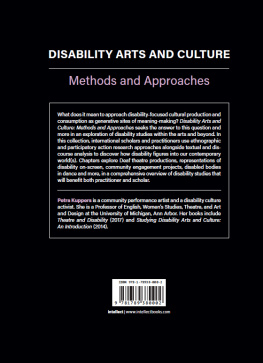Contents
Guide

For Nadia Sohn Fink
and
For all our families:
chosen and inherited, past and future
LOOKING FOR LINEAGE
Im seven. Im walking through room after room in my grandparents cavernous Long Island house, looking for my cousin. Cousin, cousin, I call, wishing I knew his name. Cousin... XY, I call. I know hes a boy, and Im a geneticists daughter. Chromosomes count.
Cousin XY visits me in dreams. He has his fathers eyes.
My Cousin XY was born in 1972 with Down syndromeand immediately abandoned to a state institution. He was listed only as Baby XY. I always knew my aunt and uncle had given away their son at birth. His very existence was explained to me as a tragedy. A crisis. An aberration that perhaps science could one day prevent. In the hospital on the day he was born, his mother refused to look at his face: Take him away.
Hismygrandfather, a family doctor, the family medical expert, was firm: Give him up. You can start over. You have a right to real children; he will be happier there.
Where was there? I often wondered where my cousin was, who he was. Silence and two neurotypical children quickly replaced him in the family narrative. On the rare occasions when his existence came up, everyone gave them away was repeated as a gospel truth. And indeed, in the 1970s, institutionalization, abandonment, and excision from the family narrative was still too often the fate of those labeled incurable at birth.
But I discovered that wasnt the whole truth. As with most families, the story of my familys disability lineage had far more strands than I realized. In 2017, when I was visiting a far-flung branch of my family in Manchester, UK, I discovered that there was another cousin in my family with Down syndrome, also on my fathers side, buried in plain sight: Rhona. Born in Scotland in 1946, two decades before Cousin XY, Rhona lived in apparent happiness, first with her nuclear family in Glasgow and then in a group home called Cosgrove, which her mother helped found, for disabled Jewish people. True to her nameRhona means joy in Hebrewshe lived a joyous, Jewish life.
Two of my family members had been written out of the family story. De-lineated from our lineage. I mourned what I never had: both a lived relationship with my cousins and a family myth that could include them. I wondered how the knowledge of a rich, deep history of disability in my family would have changed my experience of my own daughters diagnosis at age two as a disabled, nonspeaking autistic person. If I had grown up playing with Cousin XY, would we have experienced her disability as part of the warp and woof of our lineage, instead of as a personal disaster, rending us from the fabric of family?
These were the questions that led me to think about disability lineage and what the implications of repressing, hiding, finding, and celebrating it might be for disabled people and their families everywhere. By cutting me off from knowledge of my disabled cousins, I had no source of disability knowledge and history in my family. Their lives were treated as extraordinary, disposable, and traumaticso traumatic that the very fact of them was hidden, erased from the story our family told about itself.
This is typical of how disability is narrated in the family myths passed down from one generation to another. Disability is erased, repressed, covered over. Families de-lineatedestroy the connections between generations of disabled people, their families, and their caretakers. Our disabled kin are not merely misrepresented. They are written out of the story.
By examining the ways families excise disability from their stories, I began to see how disability is fundamentally shaped by this omission. The way we assign meanings to bodies and minds, establish norms, and
otherize and stigmatize according to perceptions of ability is inseparable from how we name and claim our kin. Family is defined and produced by eradicating disability lineage, often making the inevitable appearance of disability within a given family a crisis: a trauma to be erased, effaced. Unwritten. I refer to this process as de-lineation: the separation of disabled people from their lineage. The word delineate literally means to mark off with lines, and thus separate. It includes the word lineate, derived from lineagefamily ancestry. The de-lineation Im examining here is sometimes literal, as with the institutionalization of my cousin XY; it is sometimes rhetorical, as with the suppression of my cousin Rhona and her disability from the family narrative. Delineate also means to describe or portraya form of inclusion. So within the word itself lies the potential to re-lineate: to sew a family member back into the fold. To describe, portray, and, thus, connect.
The concept of disability lineage, which is at the core of All Our Families, offers a way of reimagining the possibilities for our relationship to disability and family. If we found and reclaimed our disabled ancestors, our understanding of family, self, and bodymind would be profoundly altered. Wed have an archive of the vast variations of bodyminds in our past to draw on, which would help us value the diversity of our current kin. As I traced my own disability lineage and examined why it hadnt been incorporated into the story my family told about itself, I became more convinced that the erasure of disability lineage is one of the primary ways that disabled people are rendered other to their own families. Our current misunderstanding and pathologizing of disability rests on this exclusion of our disabled kin. In exploring what it means to recuperate disability lineage, I use my own journey to open up the possibilities for inclusion and redefinition for all families and bodyminds.
I invoke Eli Clares term body-mind here to denote how mind and body are inseparable, and how any nonphobic understanding of disability is predicated on an acknowledgment of that indissoluble relation. However, I prefer a nonhyphenated neologism, bodymind, to truly honor the inextricable nature of embodiment and consciousness.
Disability is entwined not only with the relationship between body and mind but also with other formations of identity. While I have considered how disability is shaped by multiple vectors of power and difference such as race, gender, and sexuality, I am limited, like all critics, by my own positionality. White, middle-class, Jewish, queer, not disabled (yet). Of course these broad categories dont tell the whole story. My heritage is Eastern European, Brazilian, and Scottish; I am married to a Korean American, gender nonconforming person; my daughter is biracial, Korean and Jewish; and our extended family stretches around the globe.
This is what I know about my family. Some of our origins remain unknown, untraceable. Race, class, religion, sexuality, and gender complicate these categories. As a queer person, I claim a sort of familial-national affiliation and family of choice with queers all over the worldand the experiences of oppression and liberation in which this identity is rooted. I also have privileges that shape my identity in ways that are hard to see and painful to own. I benefit from all the hidden violence against BIPOC (Black, Indigenous, and People of Color) people that constitutes white privilegeand from the ableism woven into how we produce raced bodies. While like most people over fifty, many of my bodily functions are impaired, I am still deemed normative enough not to be sorted as disabled. At least not yet. I am critical of such sorting systems, and this book explicates some of the ways these categories and sortings perpetuate ableism and rupture lineage. But nonetheless, its important to mark that I do not share the experience of being regarded as disabled by my culture.

